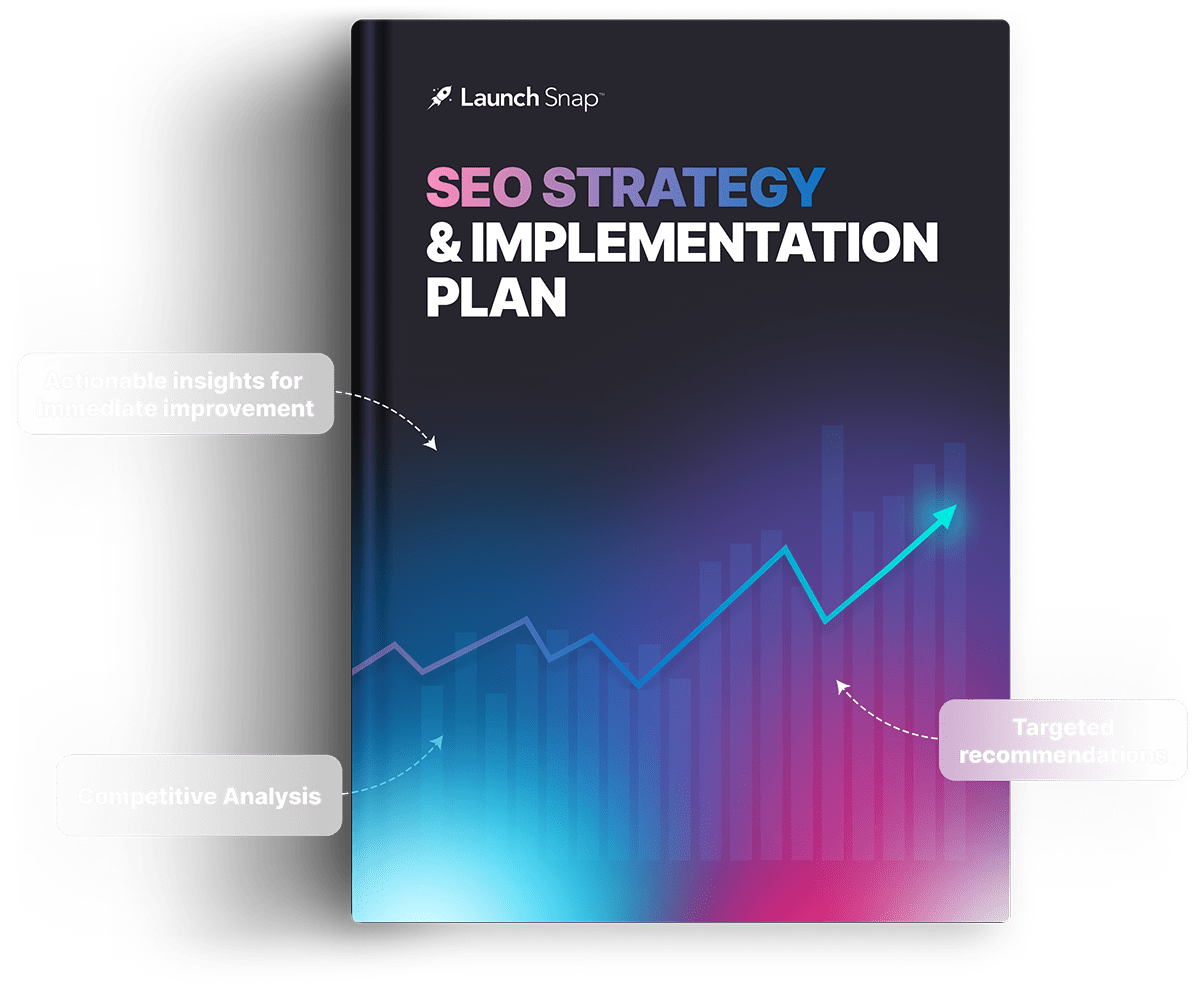Top Reasons Why B2B SEO Fails (and How to Fix It)
SEO can truly be a game-changer for many companies. Done right it builds traffic, builds brand awareness and generates leads. However, it requires a commitment to a long-term approach and a lot of analytical thinking to properly target a niche B2B industry.
Here are the top 12 reasons why B2B SEO strategies fail and what to do about them.

Lack of Patience
SEO is a marathon, not a sprint. If you want to see results, it requires ongoing effort and time. Expecting quick wins often leads to frustration and good SEO strategies being abandoned. Building a successful SEO presence demands consistency and the understanding that real growth accumulates over months, not days.
What to prepare for:
- Set expectations for the long-term.
- Celebrate small and incremental wins.
- Stay committed to continuous SEO efforts.
Inadequate Planning
Some B2B companies have an ad hock approach to SEO with no clear plan or strategy. Starting with a cohesive strategy, based in research will ensure your SEO efforts are focused and supporting each other.
Next Steps:
- Develop a targeted SEO plan based on solid research.
- Conduct detailed keyword and competitor analysis.
- Clearly define your SEO goals and target audience.
Unrealistic Expectations
SEO is slow and somewhat unpredictable. There are many variables beyond your content such as your site speed and overall domain authority that you have to consider. Don’t let overly grand expectations to lead to frustration.
How to prepare:
- Set achievable, measurable SEO goals.
- Align expectations with industry norms and current website performance.
- Regularly review and recalibrate goals as needed.
Tip #1: Patience
Focus on consistent, quality content and site optimization; understand that SEO takes time and adjust your strategy based on solid data and gradual improvements.
Poor Quality Content
Content is the work horse of your SEO strategy. Yet, many sites have outdated and low-quality content. Content should be fresh, unique, relevant to your customers and tick all the boxes of technical SEO. If your content isn’t measuring up, it’s time for an upgrade.
How to upgrade:
- Prioritize informative, well-researched content.
- Regularly update existing content for relevance and accuracy.
- Diversify your content to engage different segments of your audience.
Ignoring Technical SEO
Sometimes technical SEO feels like busywork, especially when doing cleanup. People can get frustrated with tons of little text snippets to write or think the header structure won’t really matter. But technical SEO works as a whole, not just a page by page basis. You need to consider all the elements especially site speed, mobile optimization and security.
Here’s what to do:
- Conduct regular technical SEO audits.
- Address issues like slow load times, mobile usability, and site security.
- Ensure a clean, organized site structure for optimal crawling and indexing.
Ineffective SEO Keyword Targeting
Keywords determine the route you’re taking on your SEO journey, and wrong turns could be disastrous. In the quest for the most relevant keywords, B2B marketers should first look for keywords that reflect the exact queries that their audience is using, incorporating this as well as factoring in the competitive landscape and the search intent behind keywords.
How to focus:
- Focus on selecting relevant, industry-specific keywords.
- Balance broad terms with more specific, long-tail keywords.
- Continually refine and update your keyword strategy based on performance data.
Neglecting Mobile Optimization
A mobile friendly site is no longer a nice-to-have…it’s a must have. In fact, not being mobile-friendly is a liability and it’s a big factor on how you’ll rank.
How to adjust:
- Optimize your website for mobile phones and tablets.
- Test and improve mobile load times and user experience.
- Implement responsive design to ensure content displays correctly across devices.
Inadequate Backlink Strategy
A backlink is a vote of confidence from one site to another. However, not all backlinks are created equal, some will actually hurt your SEO. Creating a careful approach to earning these relevant, authoritative backlinks can have a significant impact on your SEO standing.
How to connect:
- Aim for quality over quantity in link-building efforts.
- Seek backlinks from respected industry sources and publications.
- Engage in guest blogging and partnership opportunities to build your link profile.
Failure to Adapt to Algorithm Changes
The world of SEO is constantly changing, with search engines often updating their algorithms to improve user experience. Companies who fail to keep up find their rankings falling. Staying informed and flexible, willing to pivot in accordance to the algorithm updates taking place, is its own strategic advantage.
How to adjust:
- Stay up to date on the latest algorithm releases.
- Be prepared to adjust your SEO strategies as needed.
- Regularly review your performance and make data-driven adjustments.
In the ever-evolving world of SEO, adaptability is not just a strategy, but a necessity; those who fail to evolve with algorithm changes risk falling behind in the digital race.
Overlooking Local SEO
Local SEO is a powerful tool for any business that operates in a specific geographic market, but as you might expect, many businesses exclusively focused on the B2B space frequently neglect this all-important aspect. Yet for businesses that do it right, local search can be a powerful tool to attract nearby businesses.
Next Steps:
- Optimize for local keywords
- Ensure your name, address, and phone information is accurate and consistent.
- Claim your Google My Business listing.
- Encourage and manage local customer reviews to enhance your local SEO performance.
Competitive Landscape
At the end of the day, the B2B competitive space is rich with competition and in order to maintain an edge in any B2B vertical, following best practices won’t cut it. Understanding your competitive landscape and identifying unique angles and untapped opportunities will help to give any B2B SEO the edge needed to blow by your competition in search rankings.
What to do:
- Conduct a thorough competitive analysis.
- Identify and leverage your industry differentiators.
- Keep an eye on your competitors so you can adapt and stay a step ahead.
Black Hat SEO Tactics
Keyword stuffing, creating private link networks, cloaking and other Black Hat SEO techniques attempt to manipulate search engine rankings and are clearly ethically bankrupt. While these tactics may offer short run gain, they’ll surely lead to penalties both algorithmic and manual and damage to your brand’s reputation so they should be avoided at all costs.
Solutions:
- SEO takes time. If it seems like a shortcut, steer clear.
- Build an SEO strategy that offers transparency, quality content.
- Regularly audit your SEO practices to ensure compliance.
Take the Guesswork Out of SEO
Feeling overwhelmed? An experienced, expert SEO agency like LaunchSnap can guide you. We create and find success using B2B-specific strategies and have the expertise to ensure your SEO investment delivers business results you can measure. Don’t let these common mistakes drag you down. Get in touch and start your journey to B2B SEO success today.



